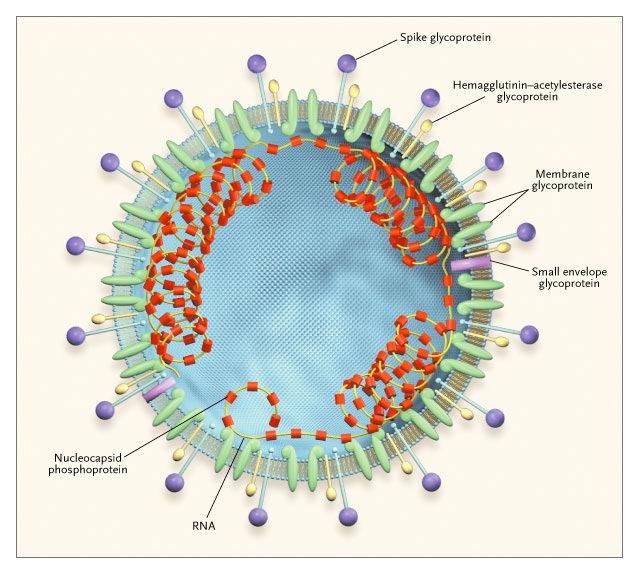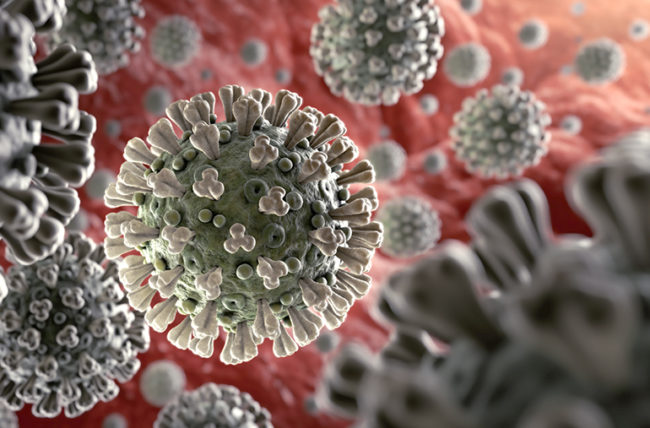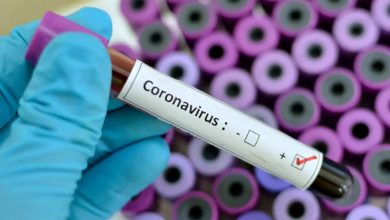How to explain new coronavirus to children
As the new coronavirus called COVID-19 continues to spread, it is important for adults to calmly communicate with their children.
Dr. Karen Rogers, a clinical psychologist at Children ’s Hospital Los Angeles, provides some guidelines on how to talk to children about the virus.
The children paid great attention to the way adults explained the new coronary disease.
Dr. Rogers said: "Please remember one of the most important things. Children usually understand the world through adults." "Therefore, depending on the way adults around them communicate with them, children are more or less anxious."
Both children and adolescents need the help of adults to correctly understand this infectious disease.
Dr. Rogers said: "They also don't have much life experience and can't imagine a scene like COVID-19." "They really need adults to interpret the information for them."
Dr. Rogers reminds adults that children often realize more than adults.
She mentioned, "Please note that children often hear adult conversations inadvertently." "It is best to talk to them directly and try to assure them."
Provide correct, age-appropriate information about the new coronavirus.
Before talking to children, adults should understand the facts and share accurate information in a way that children can understand.
Dr. Rogers said: "Make sure children understand that most children are not easily infected with COVID-19," "Adults can tell children that most children will not get sick because of this virus. This can help them reduce anxiety. "
Because COVID-19 is a new virus, scientists have not yet determined the cause of viral symptoms or mild symptoms in only a few children, but the risk of children suffering from illness is indeed lower than that of older children.
Dr. Rogers added: "Adults can tell their children about" flattening the epidemic curve of infection ", that is, we need to stay indoors as much as possible to prevent the spread of bacteria and ensure that patients receive the care of doctors and medical staff,"
Help children face anxiety caused by suspension of classes
For children of different ages, staying at home and not having social activities may put pressure on them, so adults need to provide children with some tools to cope with this situation. Maintain a life schedule (such as doing homework in the morning and activities after lunch) to help children and adults have a regular life.
Dr. Rogers said: "Everyone needs social relationships," "Interruptions in daily life may put pressure on children and use consistent lifestyles to make them feel safe." Young children may be confused about this change, for example , They wonder whether those friends are still their friends. Even teenagers who often spend time on communication devices disrupt their social life due to school suspensions. "
Dr. Rogers suggested that adults invite children and teenagers to share their feelings of being separated from their friends, and help them make plans to stay in touch through virtual visits, phone calls and even letters.
Adults also need to explain that the interruption of social activities, although uncomfortable, is temporary.
"Adults can tell their children that we don't know how long this situation will last, but we do know that the children will return to school, the adults will resume work, and everyone will meet again soon.
Adults can tell children that school suspensions can prevent the spread of the virus and prevent more people from getting sick.
To alleviate children's anxiety, Dr. Rogers also suggested that adults should limit their children's exposure to excessive news and social media. Even teenagers who frequently use social media to communicate with friends should use as few communication devices as possible.
Dr. Rogers said: "Parents need to continue to monitor children's use of social media, set time for use and ensure that children and teenagers stay away from electronic products, especially at night.
Talk to your child to reduce anxiety about the new coronavirus.
Dr. Rogers said: "This is an opportunity to help children learn. When they are worried, it is important to talk to people." "You can tell your children," When you feel anxious, please discuss with adults, because they usually have Help. ""
Dr. Rogers suggests novel ways to reduce anxiety in children. "You can say," If I tell you, most children will not get sick because of this? "Then, you can provide information for them. "
Adults also need to understand that children respond differently to stress. Children may behave abnormally, become more stubborn, a little excited or excited, harsh, moody or irritable.
Dr. Rogers said: "Children may not know how or why their behavior has changed." "They need adults to help them understand and express their feelings in a healthy way."
Adults should talk to their children and encourage them to share their thoughts and feelings. Talk about the different types of feelings your child may experience. "Some children are really worried about whether they will get sick. Some children may be happy to take a holiday or miss their friends." Dr. Rogers said. "If children have any one or some different feelings, please encourage them to share."
For adults, it is also important to help children find ways to cope with emotions. Comments include:
- Talk to a trusted adult
- Take a deep breath
- Drawing
- Write feelings into stories
Dr. Rogers added: "Children usually use distractions as a coping strategy, which may help, but adults should still spend time discussing their feelings about what is happening in life."
Older children, teenagers, and teenagers may obtain false information from online media or fall into panic. They need to help them find a reliable source of information and learn to manage the use of their electronic products.
Please tell your children that adults are working hard to maintain their safety
The spread of COVID-19 is an unstable situation. Adults can assure their children that even if the situation changes, they can ensure the safety of all of us, for example, certain safety precautions have been taken.
Dr. Rogers said: "It is important to let the children know that many adults work very hard to ensure that this disease does not make many people sick." "We can tell them that many top people have worked hard for this. Adults decided to suspend school in order to protect all talents. "
Develop good hygiene habits
For adults, demonstrating good hygiene habits (such as frequent hand washing) is the best way for children to do the same.
Dr. Rogers said: "Adult can let the child know," I want to wash my hands, I want to sing the alphabet song. "" Or adults can say, "Oh, I touched my nose. I'm going to wash my hands."
It is also important to be consistent and remind children to wash their hands with warm soapy water before playing outdoors or eating. It is also important to avoid touching their eyes, nose and mouth.
Dr. Rogers said: "These habits are the healthy habits of children throughout their lives."
If your child comes to CHLA for treatment, please remind your child that the doctor and nurse know what to do.
Dr. Rogers said: "Parents and staff can tell children that all staff at Children's Hospital Los Angeles have received such training and know how to take care of children." "Our employees have extensive experience in care. We can tell Kids, we have already made plans, and we know what to do. "
please take care of yourself.
Dr. Rogers suggested: "In this difficult period, adults also need to take care of themselves." "Some adults are particularly worried about themselves or their families. But they must also pay attention to their emotional health so that they can better take care of their children. "





0 Comments